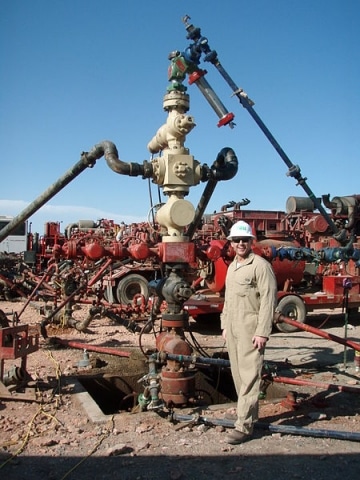A second vote on California’s fracking moratorium bill—SB 1132—fell short in the State Senate today, just twenty-four hours after it was first defeated by a margin of 18-16, three votes shy of the majority it needed to pass. We’re still awaiting the official word on how today’s vote shook out exactly.
But many Californians are not waiting for the State Senate to take action, anyway.
Last week, Santa Cruz County’s Board of Supervisors voted 5-0 to pass the state’s first-ever permanent ban on fracking. Earlier this month, the city council of Beverly Hills passed its own fracking ban with another unanimous vote. Several other counties and cities are scheduled to hold votes of their own on similar measures in the near future.
These local efforts to win fracking bans and moratoria are undoubtedly a response to the tremendous popular support for a halt to poorly understood but increasingly more common practices like fracking and acidization, which eats away at rock.
A poll commissioned by two environmental groups, the Sierra Club and the Natural Resources Defense Council, shows that more than two-thirds of Californians want a moratorium on fracking until its impacts to the environment and human health have been studied more closely by the scientific community. A poll by USC and the LA Times had similar results, finding that more than 70% of Californians favored banning or heavily regulating fracking.
While environmental groups have been organizing support for SB 1132, some of the fiercest opposition has come from groups just as concerned with health, safety, and justice as with the environment. And they are certainly not backing down, even after SB 1132 was voted down for a second time.
“It’s disappointing to see our leaders in Sacramento fail to pass a moratorium on fracking, siding with the powerful oil and gas industry at the expense of the health of our families and climate,” said Arturo Carmona, Executive Director of Presente.org, the largest Latino online organizing group in the nation. “Latinos will bear the brunt of the worst effects of fracking in California–from poisoned water to asthma, and are in the areas worst affected by climate change across the nation.”
Polls have shown wide support for a moratorium among Latinos in California. In fact, the USC/LA Times poll found that Latinos favored an outright ban or at least a moratorium on fracking by substantially larger margins than whites, perhaps due to the fact that Latinos are far more likely to live in communities suffering the adverse impacts of fracking operations.
“We will remember who stood with us today, and who chose to poison our families for the sake of corporate profits,” Carmona says. “Shame on every member of the California Senate today who voted to throw Latino families under the bus.”
Purveyors of fossil fuels and their lobbyists have been fighting back, of course. California’s Monterey Shale, once expected to trigger a new “black gold rush,” may have drastically less recoverable oil than previously thought — some 96% less — but that doesn’t mean that Big Oil is keen to see even a temporary halt to fracking, which makes it possible to exploit heretofore unreachable oil reserves.
Much of the oil industry’s pushback has been through political donations.
Last week, after the California Senate Appropriations Committee voted 4-2 to move SB 1132 to a vote on the Senate floor, David Turnbull of Oil Change International noted that “Senators voting against the moratorium have received nearly 3 times as much in Big Oil contributions [as] those voting for it.”
Image credit: Joshua Doubek via Wikimedia Commons
Subscribe to our newsletter
Stay up to date with DeSmog news and alerts







